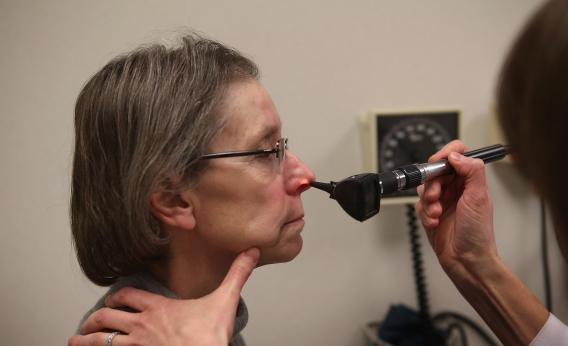Slate’s founding editor Michael Kinsley writes that “Krugman and other deficit doves seem to think that the only reason anyone would be a deficit hawk at a time like this is that he or she wants to dismantle the government.” He thinks we should, instead, consider the possibility “that some folks really mean it when we say, no, we really are concerned about the effect of the national debt on America’s long-run prosperity?”
Maybe. But I actually think the opposite is true. We’d get a lot more clarity if the folks worried about the economic impact of the projected growth in Social Security, Medicare, and Medicaid spending would act like right-wingers and worry about the impact of all that spending rather than talking about debt and deficits. The Committee for a Responsible Federal Budget, for example, has a long and very confusing in-the-weeds report out today (PDF) trying to push back against claims that we’ve already done most of the work needed to stabilize the debt:GDP ratio. Their argument is hard to follow and not especially persuasive, but the core point they’re making is dead on—none of the deficit reduction thus far enacted has touched Social Security, Medicare, or Medicaid, so it hasn’t really taken a whack out of what the real problems are.
So what are the real problems? Simple. One thing the government does is tax the labor and investment activities of non-seniors to cut checks to elderly people (Social Security). Another thing it does is tax the labor and investment activities of non-seniors to cut checks to elderly people’s doctors (Medicare). And a third thing it does is tax the labor and investment activities of non-seniors to cut checks to elderly people’s long-term care providers (one of Medicaid’s functions). In the future, the ratio of elderly people to non-elderly people is supposed to rise, and the ratio of doctors’ fees to average incomes is also supposed to rise. Which is to say that holding program functions constant the burden of placed on the non-elderly is expected to rise. But this increased burden exists whether the payment comes in the form of taxes (people don’t like paying taxes!) or in the form of borrowing (which will eventually lead to taxes people don’t like to pay!) so the issue is all about spending money on old people and not about debt or deficits.
Where I part ways a bit with the entitlement hawks is that I think this problem is actually quite a bit more profound than they realize. Futzing with program design doesn’t change the fact that the elderly are growing as a share of the population and that the elderly require quite a bit of health care services. Things like pushing 66-year-olds off Medicare and into the private insurance market don’t really address the issue, which is that the real capacity of the economy to provide these services needs to increase. We either need more doctors or more adequate substitutes for doctors. We need more long-term care providers. Taxpayers don’t need to foot the bill for the whole thing, but the whole medical infrastructure is very bound up with public policy and something has to be done. Canada reduces the burden that health care places on the taxpayer by paying providers less for the services they render, which could be a promising start.
